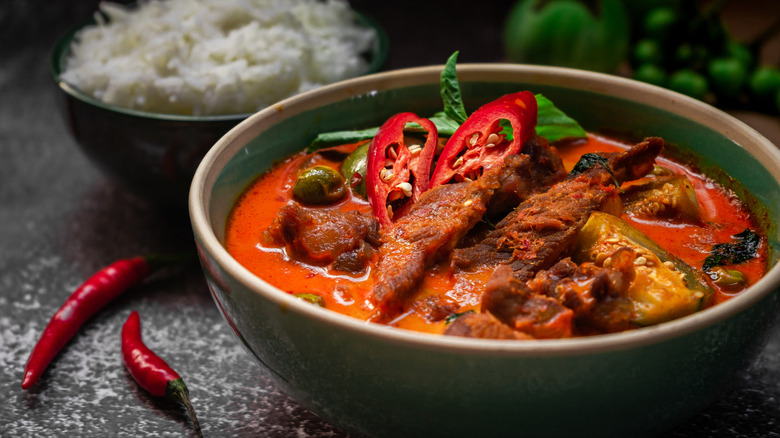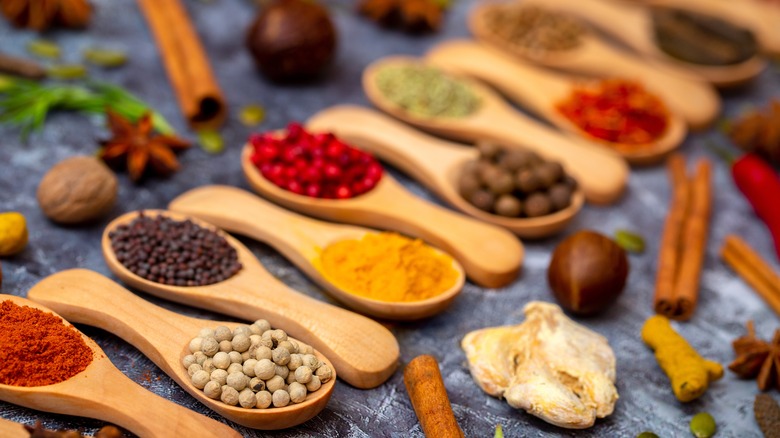What Time Of Day Should You Eat Spice-Filled Food?
When you think of foods packed with spices and herbs, you probably think about dishes such as biryani, mole, curry, and pho. While these ingredients always help to add that extra boost of flavor, there are also nutritional benefits to enjoying certain spices in your meal.
John Hopkins Medicine tells us that spices such as turmeric, ginger, and cayenne may actually have some modest health benefits, such as reducing inflammation, getting rid of nausea, or even providing pain relief. In some cases, adding some spices to your favorite foods may even help reduce allergies. Although more research is needed, the versatility of spices can allow you to enjoy these natural cures in a variety of tasty ways.
For all this talk about the delicious, nutritious benefits of spices, there are some people who may not be able to enjoy these benefits as fully as others. Some people, according to Kean Health, may be genetically predisposed to not tolerate spices particularly well. One person may be able to eat an incredibly spicy dish without much trouble, while another person may complain that even cinnamon is enough to get their tongue burning. Just as there are people who can eat practically any dish without issue, there are those who naturally struggle with spice, resulting in minor but annoying pains such as heartburn or acid reflux.
According to one registered dietitian, however, there may be a "correct" time to enjoy spice-heavy foods and avoid those common pains.
You may want to eat spicier foods earlier in the day
While you may be in the mood for some hot wings or some pepper-packed takeout for lunch, it's best to wait a little later in the day to satisfy your craving for spicy snacks. This advice comes courtesy of Supriya Lal, RD, MPH, who spoke to Mashed about the best time to eat spice-heavy foods.
While Lal admits that the timing of one's meal "typically does not correlate with increased or decreased [spice] absorption," she notes that "consuming spices later in the day might be easier" for "individuals with certain health conditions such as GERD or acid reflux." That's not a hard-and-fast rule, though. She also explained to HuffPost that for those who may be able to handle spicier foods a bit better, eating them earlier in the day is recommended.
There are ways to lessen the effects of spice-induced discomfort, too. "A good way to prevent heartburn when consuming a large amount of variety of spice is to pair it with some sort of base, such as yogurt, which can act as a neutralizer to calm discomfort," Lal says. "Additionally, you can consider avoiding drinking alcohol while eating a spice-heavy meal to reduce the amount of discomfort felt."
Perhaps the most key piece of advice Lal gives is to stick with what works for you. "Everyone's preferences and comfort level varies, so I encourage individuals to consume a variety and intensity of spice according to their preference," she says.

